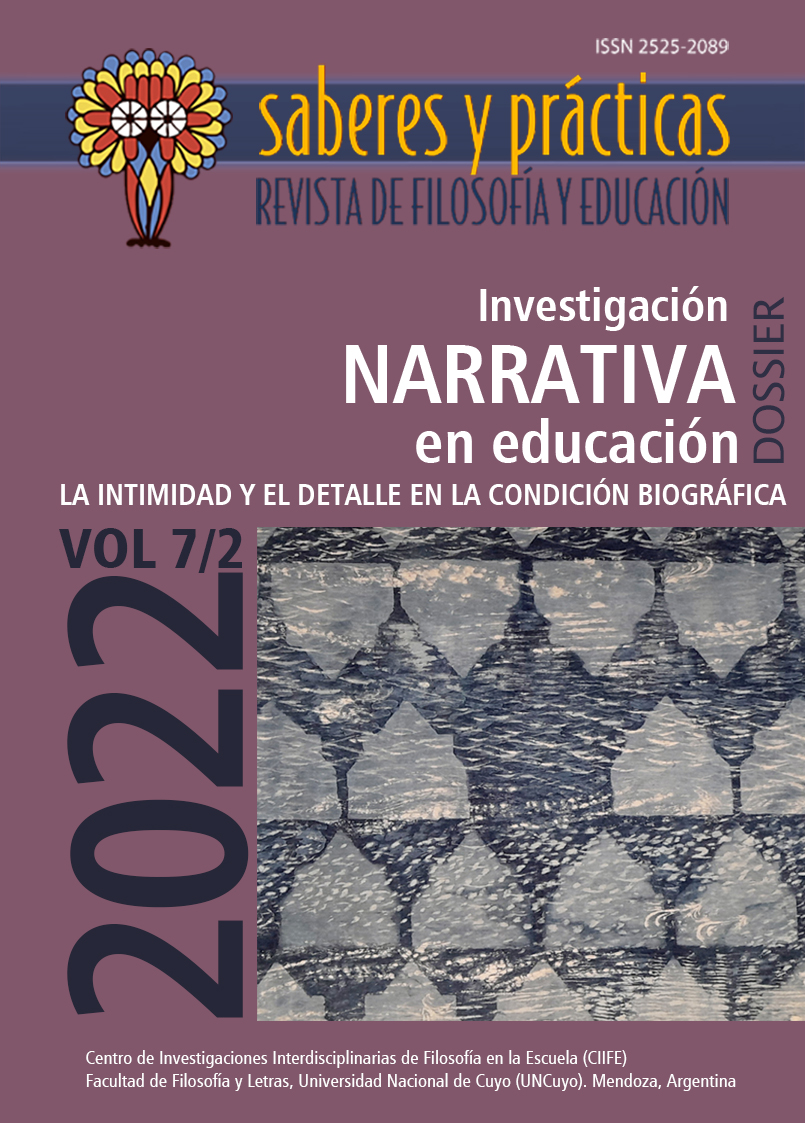Formation and the question of tact. Considerations from aesthetics for education
DOI:
https://doi.org/10.48162/rev.36.064Keywords:
aesthetics, formation, tact, higher education, pedagogyAbstract
This article develops the topic of the formation of tact. This topic, which from the sciences of the spirit is called bildung or formation, considers aesthetics in the formation of life as a principal question. It is proposed that we contemplate those actions or reflections that help to sensitize and build spaces for humanization among men. Today, in the pedagogical context, the same demands of tact are required for both teacher formation in higher education and for secondary students. It is about thinking of pedagogical processes from the perspective of aesthetics. In order to develop this topic, we have approached the reading from two authors: Hans-Georg Gadamer and John Dewey, and from a pragmatic hermeneutic reading, we have placed aesthetic formation as a central element in the conversation. In this way, the importance of tact relates closely with the importance of aesthetics in professional teacher formation, as in the very exercise of those teachers, because building the sensus communis is the challenge of a teacher of knowing, that from tact, an opportunity is opened to find an experience that forms and projects within the conversation.
Downloads
References
Carr, D. (2005). El sentido de la educación. Una introducción a la filosofía y a la teoría de la educación y la enseñanza. Grao.
Chacón, L. (2018). Una formación docente en clave antropológica: La antropoformación. Telos: Revista de Estudios Interdisciplinarios en Ciencias Sociales, 2, 277-306.
Dávila, I., Urra Dávila, L. & Jiménez Sánchez, L. (2018). La educación estética: una mirada desde la formación profesional pedagógica. Atenas, n°42, 122-136.
Dewey, J. (2000). La miseria de la epistemología. Ed. Biblioteca Nueva.
Dewey, J. (2004). Democracia y educación. Ed. Paidós.
Dewey, J. (2008). El arte como experiencia. Ed. Paidós.
Dewey, J. (2008b). Teoría de la valoración. Ed. Siruela.
Dewey, J. (2009). Democracia y escuela. Ed. Popular.
Dilthey, W. (1978). Teoría de la concepción de mundo. F.C.E.
Ferrada-Sullivan, J. (2019). Sobre la noción de excritura en Jean–Luc Nancy. Cinta De Moebio. Revista De Epistemología De Ciencias Sociales, (64), 123–131. https://dx.doi.org/10.4067/s0717-554x2019000100123
Ferrada-Sullivan, J. (2019b). Sobre la noción de cuerpo en Maurice Merleau-Ponty. Cinta De Moebio. Revista De Epistemología De Ciencias Sociales, (65), 159–166.
Freire, P. (2008). El grito manso. Ediciones Siglo XXI.
Gadamer, H. G. (1993). Verdad y Método I y II. Ed. Sígueme.
Gadamer, H. G. (2000). Educar es educarse. Ed. Paidós.
Gadamer, H. G. (2002). Acotaciones hermenéuticas. Ed. Trota.
Garcia, J. (2020). Ciencia consentida: resignificando los sentidos en la enseñanza de la ciencia. Tecné, Episteme y Didaxis: TED, 47, 217-231. https://doi.org/10.17227/ted.num47-11337
Gómez, S., Gallo, L. y Planella, J. (2018). Una educación poética del cuerpo o de lenguajes estético pedagógicos. Arte, Individuo y Sociedad, 1, 179.
González, L. & Retamal, J. (2011). Clima escolar y gestión compleja del conocimiento: desafíos para la investigación educativa y la política pública en violencia escolar”. Magis: Revista Internacional de Investigación en Educación, 8.
Ortega y Gasset, J. (1989). Obras completas. Madrid.
Pérez-Guerrero, J. (2018). La formación del gusto como paradigma de la educación personalizada.
Van Manen, M. (1998). El tacto en la enseñanza. Ed. Paídos.
Published
How to Cite
Issue
Section
License
Copyright (c) 2022 Alejandro Andrés Berrios Avaria, Nelson Cristian Rodriguez Arratia
This work is licensed under a Creative Commons Attribution-NonCommercial-ShareAlike 2.5 Argentina License.





















